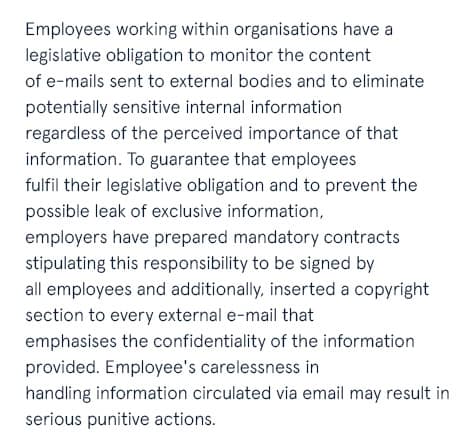Verbal Reasoning Test: What You Need to Know to Pass
About to take a verbal reasoning test? You’ll be ready to face it head on with the pro tips, techniques and examples in this guide. Keep reading to find out how to prepare for and pass your upcoming test!
In this free verbal reasoning test guide we will show you:
- 3 key steps to understand what’s expected of you
- Essential verbal reasoning practice questions
- 4 pro tips to ensure you ace your test
You can find some of the best tailored verbal reasoning practice tests here.
What is a verbal reasoning test?
First things first:
If you’ve been asked to take a verbal reasoning test, it’s because your potential employer wants to gauge your communication skills and ability to use the English language at work.
These tests measure how well you understand, interpret and analyse written information.
While they’re not about your reading ability or language fluency, you do need to be able to understand vocabulary and phrasing to extract logic from text.
In essence, verbal reasoning tests are about your comprehension and logical reasoning skills.
They show employers if you can think constructively and draw accurate conclusions — traits that are highly valued across practically every industry.
Because of that, verbal reasoning tests are one of the most commonly used psychometric tests for recruitment across a variety of graduate, administrative, managerial and technical roles.
Pro Tip: It’s a good idea to try and find out who designed the test you are taking, as tests can differ depending on the provider. You can do this by simply asking your assessment day/interview contact for this information, which also shows you’re serious about doing well on the test. You can find expert practice tests for the different providers here: Talent Q, SHL, Kenexa, Cubiks Logiks, Other.
What to expect in a verbal reasoning test
These tests are timed — that’s the first and most important thing to note.
The time limit will vary between employers, but you can usually expect to have around 30 seconds – 2 minutes to answer each question.
Questions in a verbal reasoning test will give you a passage of text that you need to read and understand. It could be in any style, including a news or journal article, or business report.
You’ll then see a set of statements related to the passage that you need to evaluate.
For each statement, you need to choose whether it’s:
- True — the statement follows logically from the information in the passage
- False — the statement cannot follow logically from the information in the passage
- Cannot Say — it’s impossible to determine whether the statement is true or false from the information in the passage
The passages of text are likely to be related to the industry or role you’re applying for, but that’s not a given — they could be about anything.
Don’t let that worry you, though.
Your topic knowledge doesn’t matter in verbal reasoning tests. It’s about how well you understand and interpret the information you’re given.
Verbal reasoning test example questions (and answers)
Let’s put all this into practice with a couple of real-world verbal reasoning test example questions from JobTestPrep.
Take a look at this passage and following statement:
Read the above piece of writing and then decide whether this statement is true, false or cannot say:
Supervisors should monitor employees’ email accounts to minimise the the leak of exclusive information.
- True
- False
- Cannot say
ANSWER
In the passage, we’re told that employees have a legislative obligation to monitor the content of emails sent. It doesn’t say anything about the supervisors’ obligation.
Here’s one more statement to try, related to the same passage of information above:
If salary cuts and permanent dismissals are possible punitive actions employers can take, then they may be used to punish employee inattention to the e-mail content regulation.
- True
- False
- Cannot Say
ANSWER
Verbal reasoning test practice video
Be sure to take 5 minutes to watch this video tutorial. Don’t forget to grab a pen and make some notes.
How to pass your verbal reasoning test: 4 pro tips
#1: Prepare as much as possible
Verbal reasoning tests are one of the most difficult psychometric tests, especially if language isn’t your strong suit. But you can overcome this with preparation.
Here are some of the best ways to prepare for and ace your test:
- Take verbal reasoning practice tests. These will simulate the real testing environment to help you become more familiar with the types of questions and working to a time limit. Take as many as you can, and take them seriously. You can find the best tailored practice tests here.
- Practise different solving strategies. Some people prefer to read the passage first, and then look at the statements and answer the questions. Others prefer to read the statements first and then look at the passage, so they know what information they’re looking for. Both of these strategies can be successful — try them both during your practice tests so you know which is more effective for you.
- Read as much as you can. Outside of practice tests, you can also improve your language and comprehension skills in your day-to-day life by reading a range of different text types. Read news articles, blogs, academic journals, whitepapers. Immerse yourself in different topics and subjects. The more you read, the better your vocabulary and understanding of language will be.
#2: Read each test question more than once
Make sure you fully understand both the passage and statement before you decide on your answer.
Verbal reasoning test questions are purposefully written in a complex way. Read them carefully — at least twice — so you don’t get caught out.
Also, don’t make any assumptions. Everything you need to answer the questions correctly is in the passage.
If you can’t see a key piece of information in the text that you need to make a certain judgement of “True” or “False”, always go with “Cannot Say”.
#3: Manage your time
The strict time limit is the hardest part for many test-takers. Time pressure tends to add to stress levels, which can lead you to get flustered and not read the questions properly or make silly mistakes.
One of the best ways to get yourself really familiar with the time constraints is by taking plenty of timed practice tests.
And when it comes to the test itself?
Scan ahead to see how many questions there are in total, as well as how many statements there are for each passage before you start reading it. This will give you an idea of how much time to spend on each question.
And of course, know when to move on. If you find that you’re spending a lot of time on a particularly difficult question, it’s always best to leave it and go on to the next one.
#4: Don’t forget the simple things
You should do everything you can to put yourself in the best possible frame of mind before your verbal reasoning test.
Self-care is essential for better performance. Get plenty of sleep the night before (ideally 8-10 hours), avoid alcohol, and eat a good breakfast so you can focus with a clear head.
Be there early so you’re not rushed and panicked, and remember to breathe and stay calm.
Little things like this might seem insignificant, but they can make a world of difference.
And finally: GOOD LUCK! You’ve got this!
Some more guides to help you succeed…
- Numerical Reasoning: Numerical Reasoning Test Guide: 5 Proven Tips to Succeed
- Logical Reasoning: Logical Reasoning Test: The Ultimate How-to-Pass Guide
- UKCAT: UKCAT Test Guide: 4 Secrets to UKCAT Success 2020
- Watson-Glaser: Watson-Glaser Test: Everything You Need to Know to Pass
- Mechanical Comprehension: Mechanical Comprehension Test Guide 2020





